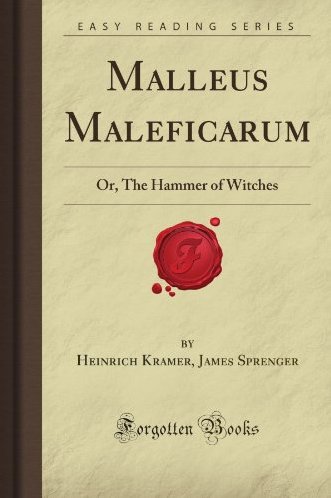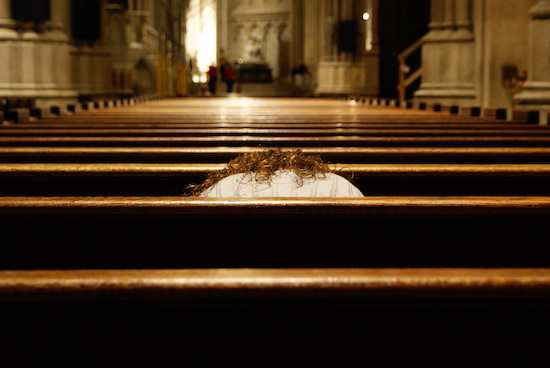When I started my private practice in the late 1980s, I found myself in the odd position of suddenly having an influx of referrals from two very unexpected sources. I started seeing former Catholic nuns – older women who had entered religious life at a young age – and, of all things, former Ananda-Marga nuns (“the Margs”). While the Catholic nuns were more familiar to me from childhood, the Margs were new. I discovered the two were not too dissimilar once we commenced our work together.
The women had joined these ostensibly different organisations when they were young, idealistic, and passionate about wanting to make a difference in the world. Women in both groups had been unimpressed with what modern Western life offered them in pathways to finding meaning in life, or to effect change in an unjust world. In both groups, the women eschewed material wealth and personal vanity, and looked beyond defining themselves through intimate relationships or having children. Women in both groups felt a deep longing to connect with something greater than themselves.
By the time I met them, the Catholics were mostly over sixty years old. The Margs were in their thirties and forties. I was struck by the tired, sad, lost and flat mood that characterised them all—regardless of which group they belonged to. The spark of passion that had inspired them had long gone. In its place, I saw a broken-hearted disillusionment and deadness that touched me profoundly. Many shared a sense of having had their ideals betrayed and a profound loss of meaning. Both groups seemed quite lost in terms of how to live in the world, even wondering if such a thing might be possible.
As a young therapist with no religious or spiritual leanings of my own at that time, I found it daunting to have these women turn to me. I felt woefully out of my depth to help and said so. Yet the women made it clear that something about my openness, curiosity, compassion, genuine desire to understand them and my clear wish to try to help them find a life path worth living again made me the right person for the job. They taught me so much.
Heresy and heretics
From the Catholics, I learned about heresy and heretics. Etymologically, the word heretic means “s/he who chooses”. That’s it. No more, no less.
I learned that the baggage we carry around in our heads about heretics and heresy being synonymous with bad people doing bad things is purely an artefact of religious interpretation. Similarly, left-handed people were persecuted for centuries for supposedly being evil.
It was the Catholic powers that be which made it into a ‘bad thing’, that named heretics as people who chose the wrong way, or more precisely, who chose to go against the Church’s teachings. Indeed, between the Church’s determination to be the only religion (deeming all others evil) and, later, its ruthless moves to suppress the rise of Protestants, any and all moves to question what had been claimed to be God’s will was seen as heresy — a very bad thing that had to be stamped out. Allegiance and devotion to the Church were meant to be lived out in unquestioning obedience to authority and lifelong devotion. Similarly, the Margs described how cult members’ total obedience and devotion to the power of the leader was expected and enforced. Any and all questioning of the leader was a mark of disobedience and a sign of loss of purity in spirit.

Choice

The experiences of both the Catholics and the Margs made me think about what might be learned about choice when we commit deeply to an ideal.
Subsequently, this learning has served me well in my work with couples from all walks of life and with many an individual, religious or not, facing powerful choices that threaten to unravel the fabric of their life and work.
They:
- felt dissatisfied with the state of the world around them, particularly in terms of social justice
- were unwilling to be absorbed into the options offered to them in a civilian life in the West
- were uninterested in preoccupations with wealth, status and vanity expected of them as women living in western cultures
- felt a deep calling to make a difference and work towards creating a more just world
- saw working and living in the community as a path to powerful personal and societal change
- found profound personal meaning in expressing their commitment to their choices through taking lifelong vows to devote their lives to work for change
In effect, all of these women had made powerful choices in taking up religious life as a life path.
It was only when their lived experience within their chosen organisations failed to match their dreams and expectations over time that things unravelled for them. What had initially been a powerful, compelling choice and sacred path had become a suffocating and hollow one.
Power
In both groups, I heard accounts of women initially finding great meaning in absorbing themselves into a greater whole, and eschewing personal gain and individual choice for the greater good. I heard passionate, dedicated activists profoundly committed to effecting change in the world for mankind.

Each, in turn, described their trusting willingness to be guided on this path by a presumed greater, wiser leader or leaders once they chose their path. In the process, however, each woman seemed to lose her relationship to choice. Or, at least, to critical thinking.
In their personal stories, members of both groups reported how inspired they were initially to work and contribute as part of a larger whole. They spoke of the strength, inspiration and power that they had thought living in a community would give them. And they reported that their respective vows bolstered their determination to push through difficult times.
I witnessed the danger of totally surrendering personal authority to a greater or higher authority. I heard how such power dynamics, which allow no room for honesty, truly open dialogue and critical reflection but demand total obedience to the leadership. This traps members into self-reflexive and inescapable rules that drain their life and passion.
Effectively, both groups revealed how unquestioning devotion to the cause was the sine qua non of membership to the group. From the time of induction into each group, through their years of membership, they all learned that no deviation would be tolerated by those in power. Any and every perceived deviation was quickly identified, named as bad, shamed, and intense pressure applied to enforce a return to unquestioning obedience.
Choice — pre-decisions that work and those that don’t

Vows can be seen as choice made into a pre-decision decision.
A vow is a choice that then becomes the one determining base that sets the direction and parameters for any and all choices thereafter that pertain to the original choice. It determines which choices may follow, and which are automatically excluded. Vows of exclusivity and devotion in both religious life and marriage predetermine options that exist and those that are ruled out. They also predetermine what can be talked about and questioned, and what’s not up for discussion.
Researchers in the field of choice theory report that making pre-decision decisions is a powerful way to create a solid base of support for oneself in carrying out a decision (writing a novel, developing an exercise habit, and so on), strengthening our capacity to stay on track with our choice. However, such pre-decision decisions can also be incredibly stultifying and life-limiting if left unexamined. Working with the nuns taught me that there is both power and danger in making a pre-decision decision such as a vow.
The power lay in setting aside all sorts of potentially distracting options and enabling a single-minded focus to a course of action. In committing to keeping a vow, any consideration of deviating from the pre-set course was viewed only as a sign of ‘temptation’, spiritual weakness, and distraction from the one true way.
Similarly, in making a vow of commitment in marriage, one can lean into the safety barrier, as it were, of the barrier’s pre-determined parameters about one’s relationships — with our partner, and with others outside of the primary relationship. The choice having been made, we get on with the business of focusing on making our one primary relationship work.
Research in choice theory also shows how distracting, inefficient and potentially undermining constantly opening up to choice can be. The newbie to exercise who checks daily if they feel like exercising, if it’s too hot/cold/wet to attend, if they’re tired, or have other priorities to attend to, sets themselves up to abandon their goals.
Similarly, when we continually open choice in each situation we face, we can be paralysed into either not choosing at all (overwhelm), or make ineffectual choices that don’t reflect values that mean more to us and leave us skimming the surface rather than deep-diving into what matters. I hear exactly this dilemma with how I hear people talk to me about dating apps today— inadvertently leading many to mistakenly think that a good relationship depends on choosing a ready-made person with the best rating, much like choosing a kitchen appliance or piece of furniture. This approach to partner selection sets up significant, unrealistic expectations about what it takes to create a secure, loving, meaningful relationship with another person. It obscures the reality that such relationships do NOT come as a ready-to-assemble flat pack. Instead, they require an ongoing, dynamic series of daily life choices and negotiations to create what both people want together.
The nuns taught me that their relationship to their original choice to commit to their chosen organisation and life path contributed to trapping them into something that ultimately either stopped working for them, or actively hurt them by closing off the option to revisit and critically examine whether their choice was still working for them, or helping them live according to the values they considered important to them. It also precluded examining whether the promise they bought into actually matched what they got when they entered their respective organisations.
Re-introducing choice as a dynamic choice: heresy

In my work with couples and people who want to establish helpful patterns in life for themselves, I introduce and encourage pre-decision decisions all the time. It’s a way of living that saves a lot of energy and helps people to strengthen habits they want to cultivate.
I also actively encourage people to consider choices such as partner choice, or religious/work life, to be dynamic and not static like a pre-decision decision.
This requires people to grapple with radical honesty — initially, with themselves, then with their partner/community/colleagues/others. It asks them to admit and face their ambivalence towards past choices/commitments, and admit and explore what that ambivalence is about if it no longer truly reflects how they want to live their life now.
By that I mean I encourage clients to consider how immediate, how relevant to their present moment experience, and how tangible and meaningful their choice is every single day.
This is the spirit of being a heretic. Having the courage to openly revisit past choices to honestly assess if they are still relevant; assess if we’re being true to past commitments if they’re relevant (and if not, addressing that).
This requires changing our view of what ambivalence about a choice might mean. Rather than seeing ambivalence as threatening, and trying to crush, control or deny it, this orientation asks us to be curious about it, and to see it as potentially holding valuable information about ourselves. It invites us to confront our ambivalence when we see it. Then explore whether it might be more significant than we think, then make choices that reflect our growth and values, and challenge ourselves to honour them accordingly in how we live. In doing so, we accept that we’ll sometimes drop old choices that no longer fit, or adjust them to better fit who we are becoming.
Emotionally financing choice
Anyone who has ever made a difficult life choice, be that taking a life-long vow, turning away from family expectations, or following a path not supported by society, knows viscerally how hard it is making that choice.
All heretics know they risk a great deal — sometimes membership to the community, family acceptance, livelihood, or even life itself.

Such life choices need to be emotionally financed. We need to assess the costs and potential losses for ourselves and others that our choices carry, and gauge how these weigh up against the values and meaning that making the choice carry for us. That reflection is a deeply personal one.
Every choice precludes others. Every choice usually has consequences for ourselves and others. Taking the risk to explore and navigate those consequences with those affected in our lives openly, courageously, with integrity and grace, is the grit of the heretic path.
For instance, if someone is questioning their commitment to a partner, I might urge them to think about the fact they haven’t left them yet. So, I ask them, if you could fully ‘own’ the choice to be with them, here, now, today — what would being true to your vows mean behaviourally? That is, how would you treat them? What would you say to them? How would you speak differently to how you do now? How would you treat them differently? What would you stop doing and saying? What actions would you start taking in relation to them?
These questions require the person to pull away from tailoring their words and gestures to:
- what they think might win them approval/resources or
- what would avert conflict or
- what they are resentfully/guiltily/begrudgingly doing what they feel obligated to do or
- how they are avoiding a challenging conversation
Instead, it invites them to move to a position of radical honesty and truth-telling, and the real possibility of creating a truly heartfelt, meaningful, up-to-date, dynamic commitment based on real choice.
With dynamic choice, each person challenges themselves to move towards taking the risk to authentically speak their mind, to honour differences arising, and stand by their priorities. That person is backing themselves in relation to these choices, whilst remaining in dialogue to work towards arriving at a mutually beneficial outcome. It means risking the benefits we had under the old agreement, for something else we deem to be of greater value.
This is the exciting power and terror of dynamic choice.
The choice, whatever it may be, is reaffirmed each day through a consciously chosen set of reflections about the behavioural implications each choice entails, and acting accordingly. Or else, raising a conflict if one is identified, and working towards an updated understanding of what the new choice looks like.
In this way, we can turn a commitment from a previously meaningful, but now no longer relevant, choice that strangles, deadens and entraps us, to a living, dynamic, enlivening, responsive choice. This choice provides us with a vehicle to express what’s most relevant and meaningful to us as our lives unfold, and supports us as we grow and change, and as our lives also change.
In this way, we build bonds of trust that preserve the best of pre-decision decisions, whilst not risking the danger of such decisions losing their contextual relevance over time. Trust grows as we know we will be the first to know if the ground changes for others and we, too, undertake to update them should our position also change.
So, what does dynamic choice look like?
For an ambivalent parent
Today, I choose to be a father/mother to my child … as such, I will [do/say … actions that go with being a conscious parent]. I will work with my partner to co-parent our child with them in a way that shares the parenting load fairly and supports us both in our parenting goals by doing/ saying …
For an ambivalent religious person or member of an organisation
Today, I choose to treat my community/team in a way that reflects my choice. I choose to speak with them in ways that honour our mutual commitment to [live in religious life/work as a team]. I choose to bring up doubts/conflicts/challenging issues for resolution instead of passive-aggressively swallowing them back and getting resentful. I choose to carry my weight and do my share of work equitably.
For an ambivalent life partner
Today, I choose to be a [life partner to X]. As such, how do I treat this person when I think of them as my chosen partner? What do I refrain from doing to/with them? How do I address outstanding issues of concern with them? How do I balance their best interests with my own?
If you think you might like some help in addressing your own issues of commitment ambivalence and working towards seeing if they can be changed into dynamic choice, call me.


